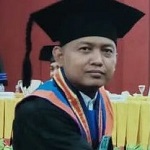Screening of Plagiarism
Jurnal Ilmiah Kesehatan Sandi Husada expressed great concern about plagiarism. The journal recognises that plagiarism is not acceptable and, therefore, establishes the following policy:. Following the guidance of the plagiarism policy developed by the University of New South Wales, Australia, 2016, below are some practises considered plagiarism
- Using the same or very similar words to the original text or idea without acknowledging the source or using quotation marks. This includes copying materials, ideas, or concepts from a book, article, report, or other written document, presentation, composition, artwork, design, drawing, circuitry, computer programme or software, website, internet, another electronic resource, or another person's assignment without appropriate acknowledgement.
- Inappropriate paraphrasing. This refers to changing a few words and phrases while mostly retaining the original structure and/or progression of ideas and information without acknowledgement.
- Inappropriate citation Citing sources that have not been read without acknowledging the'secondary' source from which knowledge of them has been obtained.
- Self-plagiarism. Occurs when an author republishes their own previously written work and presents it as new findings without referencing the earlier work, either in its entirety or partially. Scanning for plagiarism on manuscripts will be carried out using Turnitin <25% software; if more than that, then the article is returned to the author for correction.












3.png)






